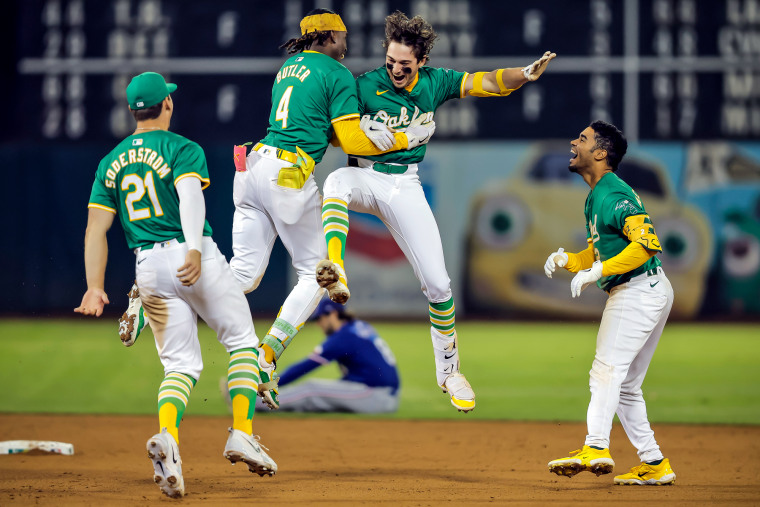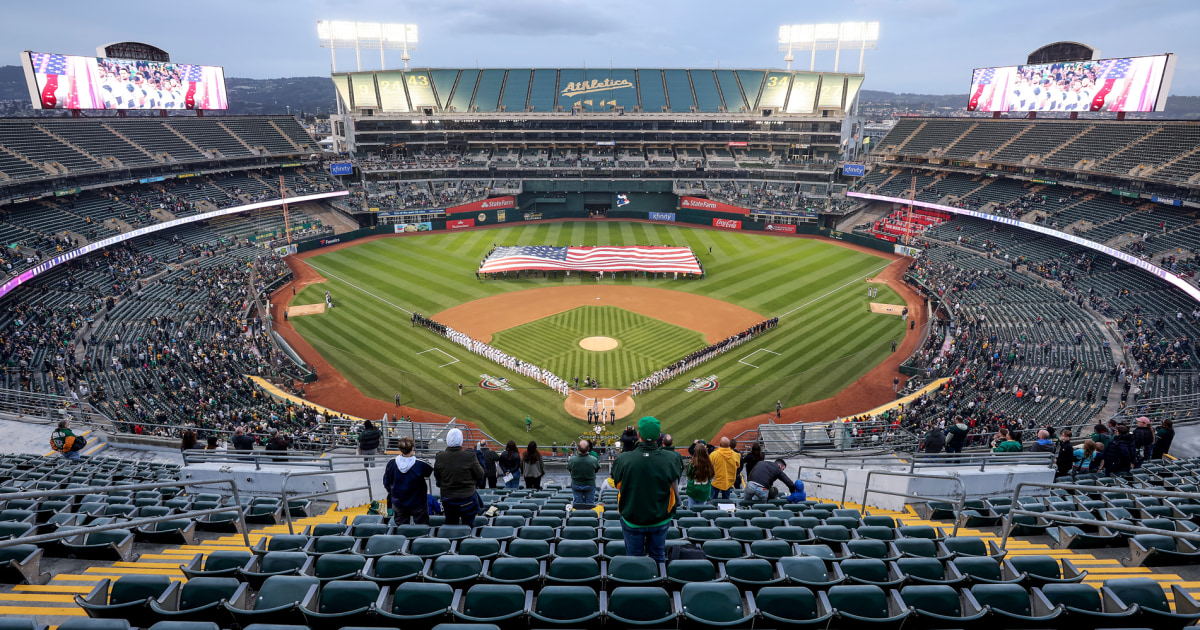The Raiders left for Los Angeles in 1982, came back to Oakland in 1995 and then uprooted for Las Vegas in 2020.
The Golden State Warriors moved to San Francisco’s Chase Center starting in the 2019-20 season after having played in Oakland since 1971.
Oakland even briefly had an NHL team: the California Golden Seals, which entered as an expansion franchise in 1967 and played nine seasons in Oakland before moving to become the Cleveland Barons, which ceased operations after two seasons.
Oakland native and former MLB player Bip Roberts, now a real estate investor in the East Bay, said he doesn’t buy the argument that his hometown lacks the audience or money to support a major-league team.
“Everything is in place for you to be successful” in Oakland, Roberts said. “When you think about those of us who have grown here, those of us who live here, we can afford to go to any sporting event regardless to the ticket price, right? To leave a large market such as this one and you go to a smaller market [Sacramento] and then to even a smaller market [Las Vegas], it’s not a great business deal, in my opinion.”
More Sports from NBC News
Oakland’s median household income, $96,828, and that of Alameda County, $119,931, both top state ($95,521) and national ($80,610) figures, according to the most recent census data. They are lower, however, than San Francisco’s median household income, $126,730, and those of nearby Marin ($139,644) and San Mateo counties ($151,485).
However, Las Vegas has evolved into a kind of sports capital in recent years. The city — which will have the A’s, Raiders and NHL’s Golden Knights — hosted its first Super Bowl seven months ago, and last year it hosted the Stanley Cup Final and a Formula 1 Grand Prix.
Vegas is also seen as a future destination for an expansion NBA franchise.
The A’s departure hands the San Francisco Giants full run of the Bay Area market. By on-the-field metrics, the A’s have historically been at least equal to the Giants. Heading into Thursday’s action, the A’s were 4,613-4,384 (.513), while the Giants were 5,473-5,119 (.517).

The A’s have won six American League pennants and four World Series, while the Giants have captured six National League pennants and three World Series. The A’s swept the Giants in the 1989 Fall Classic.
It helps that the Giants — potentially on their way to finishing .500 or worse in their seventh season out of eight — play in one of MLB’s most admired ballparks, which has led them to blow the A’s out of the bay in attendance since Oracle Park opened in 2000.
A’s fans, repulsed by Fisher’s move, stayed away in droves this season. The franchise was dead last in attendance across MLB, averaging just 10,942 fans per game as of Wednesday. (Thursday’s crowd of more than 46,800 bumped that average up to 11,386.)
Roberts pinned the blame on A’s management. Even before Fisher and real estate developer Lewis Wolff bought the team in 2005, the franchise had a well-earned reputation for focusing on its bottom line at the expense of keeping talent long-term.
Prime examples of stars lost include Reggie Jackson in the ’70s, Mark McGwire in the ’90s and Jason Giambi in the early 2000s. More recently, East Bay native Marcus Semien left as a free agent in 2021, then won a World Series with the Texas Rangers last year.
“That was something that’s been ingrained in the organization, to get these players to have such a following and backing in the city, and then they’re gone,” Roberts said. “And I think it just wore on people.”
By the ninth inning Thursday, the packed crowd was on its feet. A’s players and staff took to the field after the final out, then tipped their hats to the fans, most of whom stayed in their seats long after play ended.
Manager Mark Kotsay — a former Oakland Athletic himself — took the mic, emotion in his voice, to thank the stadium staff, his team and the fans: “There are no better fans than you guys,” he said.
Then he asked the stadium to join him in one last rendition of its signature cheer: “Let’s go Oakland.”
Dana Varinsky reported from Oakland, and David K. Li from New York City.

